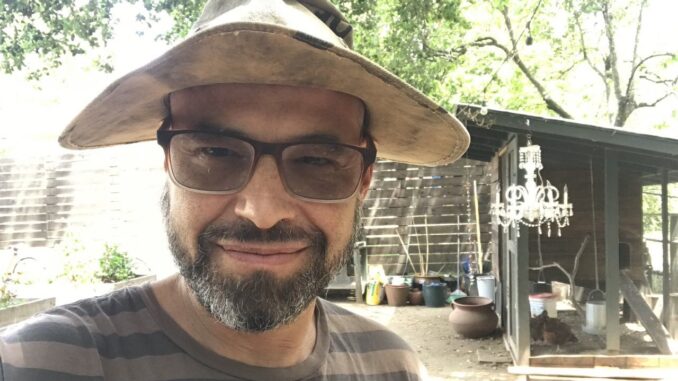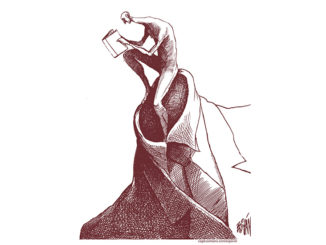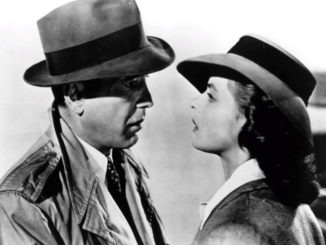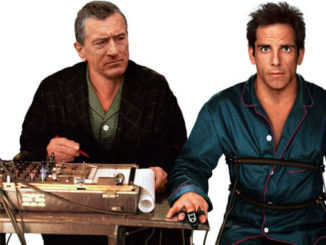
Where are you currently employed?
Universal Pictures
Current projects?
“The Chain,” “The Tommyknockers,” “Cocaine Bear,” “Don’t Go in the Water.”
Describe your job.
Remember those book reports you wrote in grammar school where you’d read a book, then write a summary, and then write a bunch of stuff about what you thought? That, mostly. But in a professional capacity, so I don’t really base my opinions on whether I “like” the material or even think it’s “good” so much as its potential to be a great movie. Sometimes these two things intersect, and sometimes they don’t. There can be other mitigating factors as well: A director or cast attachment can turn chicken shit into chicken salad under the right circumstances.
If a submission is bought by the studio and developed, it becomes a project. At this point, if I’m put “on” the project, I write more detailed summaries, identify changes from draft to draft, and give specific notes directed at making the best version of the movie everyone has agreed we’re doing.
How did you first become interested in this line of work?
Someone told me I could get paid for reading things and offering my opinion on whether they would be good movies. I like to read, and I grew up in New York City going to movie theaters where, in certain instances with certain movies, yelling at the screen was accepted and even encouraged. It turns out, all that heckling is invaluable because it teaches an analyst what an audience will and will not go for. It makes it very easy to spot “deal breakers” and false story beats or cheats.
Who gave you your first break?
Cathy Tarr at CAA. As soon as I found out there was a thing called a “reader,” I got a couple of screenplays from people in the business and bought “Clockers” at the Bookstar across the street from where I was living. I wrote some “coverage” (not really knowing how) and, using the old Hollywood Creative Directory, sent my samples out cold. I must have sent out twenty of them, and Cathy was the only one who responded. But she loved the coverage – I remember her saying “this better really be you.”
What was your first union job?
Universal Pictures. First and only union job. My second big – huge – break, came from Romy Kaufman at Universal. It’s a story in and of itself I’m writing for another column.
What credits or projects are you proudest of, and why?
There’s actually a movie that just wrapped. When I first read it, it had some racial dynamics that were a bit off. Not conscious stuff – the script wasn’t racist – but it had a pretty tone-deaf ending. I basically said: “This story can’t end this way,” and now it doesn’t. The different ending isn’t all that different, and it doesn’t change the action of story much, even though it fixes a pretty big problem. I’m not saying I was a canary in a coal mine on this thing – for all I know, 50 other people probably had the same thought – but as an analyst on the project, I have the first eyes on it and go on record, for better or for worse.
What was your biggest challenge in your job (or on a particular project) and how did you overcome/solve it?
Like I said I “go on record – for better or for worse.” Sometimes this aggravates people, and all that yelling at movie screens from my youth comes through in my coverage and notes. I don’t know that I’ve really managed to overcome this, but I try. I’m also lucky in that my co-workers and the executives at Universal know that I’m always working toward a positive end—to make movies people will cheer for and not jeer at, and that no offense is ever met. Also, the story editors I work for—particularly Adam Torchia, who has been at Universal as long as I have—know my strengths (and weaknesses) and aren’t likely to pair me with a project better suited to another reader, so I don’t often run into challenges.
What was the most fun you’ve had at work?
There isn’t much that’s not fun at work (except sometimes the actual “work” part of it). We get to do all the studio stuff like watch dailies and see rough cuts – go to the occasional premiere and so on, without being involved in studio politics. Since we’re employed at least partially because we have opinions, we can speak openly and honestly (on or off record) with executives about the strengths or weaknesses of a given project, without anyone thinking we’re trying to undermine it. It’s very free, and freedom is fun.
Jobwise, what do you hope to be doing five years from now?
If it ain’t broke, don’t fix it.
What are your outside activities, hobbies, passions?
I like going to the movies and, I don’t know, building stuff in the yard. I’m pretty passionate about honesty, which I think is an integral part of being a story analyst. If you’re going to work in show business, you need a good bullshit detector in general, and it’s invaluable when dealing with narrative.
Favorite movie(s)? Why?
“Blue Collar,” “Dawn of the Dead” (1979 version), “Casino,” “The Night of the Hunter.” I can’t answer why. I’m also not a person who plays favorites. I have a ton of different movies I love that I could go on about.
Favorite TV program(s)? Why?
I don’t even know what we’re talking about anymore when we talk about “TV programs.” Now everything is on a screen. I mean, all these epic shows with multi-million dollar episode budgets, is that TV?
Do you have an industry mentor?
I do not. No one can be blamed for me.
What advice would you offer to someone interested in pursuing your line of work?
Read a lot and be well rounded about it. Pay attention to story trends, which doesn’t just mean box office and movies and books and comics and all that; it means being aware of current events and history, too, because it’s all narrative. And if you know the stories we happen to be telling ourselves at any given moment, you’ll have a better idea what audiences will respond to when they go to the theater.
Was there ever a circumstance when you had to rely on the Guild for help or assistance?
Nope. I guess I’ve been lucky.
Is there anything you’d like to say to your fellow Guild members, some words of encouragement?
Do they need encouragement? This is a good gig, folks.
Compiled by David Bruskin.





